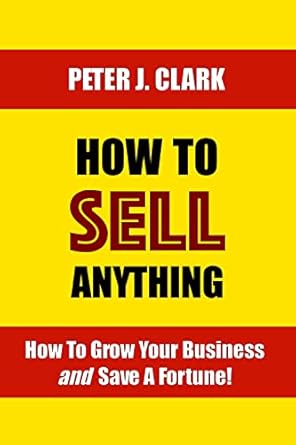Most consumers spend more on brands they trust
Trust is the new key to customer acquisition
For many consumers, trust is the deciding factor when it comes to separating a business from its competition, according to a study from Deloitte Digital and cloud communications firm Twilio, which explored the divergent perceptions of trust between consumers and business leaders in the United States.
Not only can trust help bring customers through the door, but it can also help keep them there - reducing churn and lowering acquisition costs. While that seems like a simple concept to employ, this new research uncovered a significant chasm between the way consumers and B2C leaders define and establish trust. The findings reveal that many leaders are overly confident about almost every dimension of customer trust in their brands, and as a result are leaving sizable business value on the table. The resulting report takes a closer look at how these two groups evaluate key trust signals and offers tangible actions that brands can implement to foster trust with their customers.
The report, entitled 'Close the Trust Gap to Unlock Business Value', begins by defining the four elements of trust (humanity, transparency, capability and reliability) and then provides actionable insights. A sampling of those insights includes:
- The impact of trust is quantifiable
Research shows that among consumers who track their purchases, the majority of respondents (68%) spent more on a trusted brand compared to a brand they use but trust less. And on average, consumers spend 25% more money on trusted brands. Trust also helps brands earn permission to collect more and more valuable data from customers. In fact, consumers are comfortable with their favorite brands knowing significantly more data about them than they think the brands already know. - Brands are not as trusted as their leaders think
While 79% of B2C business leaders think their customers have somewhat or very high trust in their brands, only 52% of consumers report feeling those levels of trust in the brands they interacted with so far in 2021. - Consumers define the building blocks of trust differently than B2C leaders
Nearly 3 in 4 consumers say quality products or services (72%) and fair prices (73%) are critical to building their trust in a brand. Yet only 38% of B2C leaders recognize that fair prices are central to building trust, and only 57% recognize the critical importance of quality products or services. - B2C leaders overestimate performance on all core trust signals
As defined by Deloitte Digital's "HX TrustID" study, consumers look to four key signals of a trustworthy brand: Humanity, Transparency, Capability and Reliability. According to this new joint report, B2C leaders are three times more likely than consumers to strongly believe that their company consistently exhibits Humanity through empathy and kindness toward customers (40% versus 13%) and twice as likely than consumers to strongly believe that they always show Reliability by delivering on their promises (40% versus 19%). - Most brands know what they need to do to earn trust, but many fall short
For instance, a whopping 98% of B2C leaders say customers trust their brand more when it's easy to do business with the brand. Consumers agree on this point, with 96% saying they trust a brand more when it's easy to do business with it, yet only 35% of consumers say it is very easy to do business with the brands they trust most. - Even the most trusted brands have room for improvement
Thirty-three customers in 100 believe that their most trusted brands are Transparent - that is, that those brands openly share all information, motives and choices in straightforward and plain language. A net of 48 in 100 say their most trusted brands consistently deliver on their promises. - Leaders are misaligned with consumer preferences
This is especially true regarding how to rebuild trust after it is damaged. Brand leaders rank "provide outstanding customer service" and "communicate proactively about the problem and the resolution" as the most important ways to rebuild trust -missing and significantly underestimating the importance of the three most-important actions in the eyes of consumers: providing refunds, offering replacements or exchanges, and admitting the mistake and apologizing. When the right actions are taken, consumers are willing to forgive mistakes, both simple and significant. This research shows on average, consumers will accept three mistakes from a brand before losing trust - provided that mistakes are resolved to their satisfaction and not repeated.
"There has never been a more important moment for brands to get it right when it comes to trust," added John Peto, US head of Deloitte Digital and principal, Deloitte Consulting LLP. "This report makes it clear that the organizations who rest on their laurels or continue with a business-as-usual approach will be leaving immense value on the table, while those that align their approach with the trust signals of their core audience will likely benefit both now and in the future."
"The lack of consumer trust is pervasive, yet we find that business leaders are consistently over-estimating the trust that customers have in their brands," commented Ashley Reichheld, principal, Deloitte Consulting LLP and the creator of Deloitte Digital's HX TrustID' platform. "Leaders must focus on measuring, predicting and acting to rebuild consumer trust so that they can foster meaningful differentiation and resilient customer loyalty. Trust is the key to accelerating growth and delivering value."
The study was conducted in the summer of 2021, surveying 1,000 consumers and 500 leaders of large, business-to-consumer enterprises in the United States about the business value of trust and the key factors that contribute to a brand's trustworthiness.
Sources: Twilio; Deloitte Digital / The Marketing Factbook.
Copyright © 2021 - 2025 The Marketing Factbook.
Categorised as:
- Customer Experience
- Customer Loyalty
- Knowing The Customer
- Marketing Know-How
- Marketing Technology
